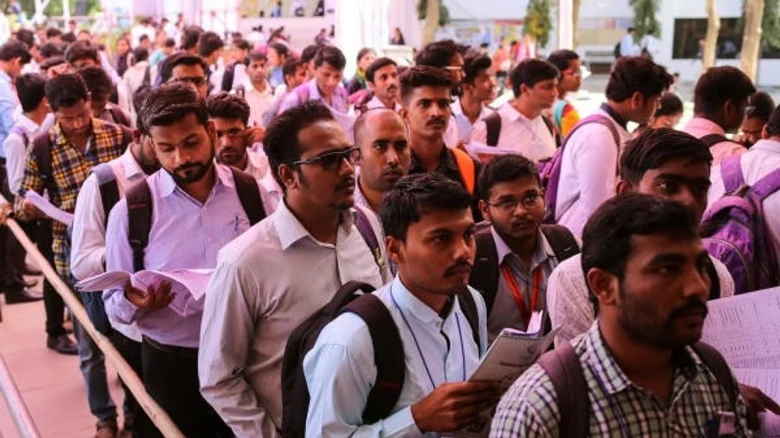The results reveal a stark reality where the pursuit of education does not necessarily translate into improved job prospects...
Digital Desk: A recent report by the International Labour Organization (ILO) has shed light on a concerning trend in India's labor market: higher-educated young people are facing higher rates of unemployment compared to their counterparts without any formal schooling. The results reveal a stark reality where the pursuit of education does not necessarily translate into improved job prospects.
According to the ILO report, the unemployment rate for graduates in India stands at a staggering 29.1%, almost nine times higher than the 3.4% rate for individuals who lack basic literacy skills. Even those with secondary or higher education face a significantly elevated unemployment rate of 18.4%, six times higher than their less-educated counterparts.
The data underscores a fundamental mismatch between the skills possessed by the workforce and the demands of the job market. This imbalance not only leads to widespread unemployment but also impedes the country's economic growth prospects over time. Renowned economists like former Reserve Bank of India Governor Raghuram Rajan have long warned about the detrimental effects of India's inadequate education system on its economic trajectory.
The situation in India is further exacerbated by the disproportionate impact on women, who account for a significant majority of educated unemployed youths. The report highlights that 76.7% of educated unemployed youths are women, compared to 62.2% for men. Additionally, urban areas experience higher rates of joblessness compared to rural regions.
India's struggle with unemployment among educated youth contrasts with global trends, with youth unemployment rates in the country surpassing the global average. Despite a slight decrease in the share of young unemployed individuals, the proportion of educated youths facing unemployment has risen over the years.
Furthermore, the rise of gig economy jobs, characterized by temporary and low-paying employment opportunities, presents additional challenges. Digital platforms have blurred the lines between traditional employment models, posing new threats to the well-being and working conditions of workers.
Efforts to address the issue must encompass comprehensive reforms in the education sector to bridge the gap between skills and market demands. Additionally, there is a need for targeted interventions to promote job creation in sectors that can absorb the growing educated youth population.
The findings of the ILO report underscore the urgency of addressing the systemic issues contributing to unemployment among educated youth in India. Without concerted efforts to address these challenges, the country risks squandering the potential of its most valuable resource – its youth.

Leave A Comment